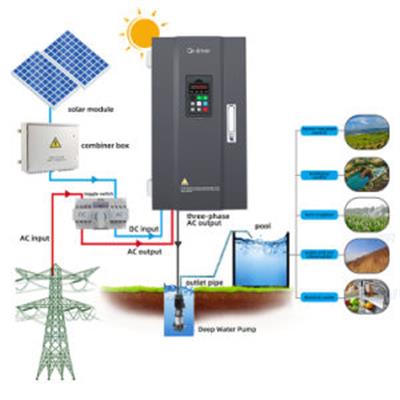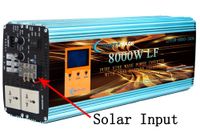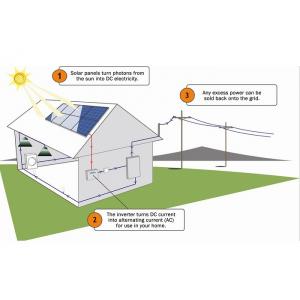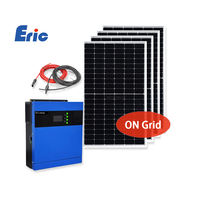The Transformative Role of Solar Inverters in the Energy Transition
The Transformative Role of Solar Inverters in the Energy Transition
Introduction to Solar Inverters
In the ever-evolving landscape of renewable energy, solar inverters serve as the crucial link that enables solar panels to transform sunlight into usable electricity. These devices are not merely technical components; they play a significant role in integrating solar energy into the grid and enhancing energy efficiency. Understanding their operation and impact is vital for anyone interested in the future of sustainable energy.
Understanding Solar Inverter Technology
At its core, a solar inverter converts direct current (DC) generated by solar panels into alternating current (AC), which is the form of electricity commonly used in homes and businesses. There are several types of solar inverters, including string inverters, microinverters, and power optimizers. Each type has its advantages and drawbacks, but all share the common goal of maximizing energy production. This technology not only improves energy yield but also provides essential data on energy generation and consumption, enabling users to make informed decisions about their energy use.
Enhancing Energy Efficiency
Beyond simple conversion, solar inverters enhance overall energy efficiency. They are equipped with advanced algorithms that track the maximum power point (MPPT), ensuring that panels operate at peak efficiency regardless of changing weather conditions. By optimizing energy capture, these inverters not only increase the amount of energy available for use but also reduce reliance on fossil fuels, significantly contributing to a cleaner environment.
Facilitating Grid Integration

As more homeowners and businesses adopt solar technology, the role of inverters in grid integration cannot be overstated. Solar inverters are equipped with smart technology that allows them to communicate with the grid, ensuring that excess energy can be fed back, thus benefiting both the energy provider and the consumer. This bidirectional flow of energy is pivotal for stabilizing the grid, particularly as the share of renewable energy sources continues to grow.
Consumer Empowerment and Energy Independence
One of the most rewarding aspects of solar inverters is their potential to empower consumers. By utilizing solar panels coupled with efficient inverters, consumers can significantly reduce their electricity bills and gain greater control over their energy sources. This shift towards more decentralized energy production fosters energy independence and reduces vulnerability to market fluctuations. As technology advances, we can expect even greater functionalities, such as battery storage integration, allowing users to further enhance their self-sufficiency.

Looking Ahead: Future Innovations
The future of solar inverters is bright, with continuous innovations on the horizon. Emerging technologies, such as artificial intelligence and IoT connectivity, promise to improve the performance and reliability of these critical devices. With increased efficiency, lower costs, and smarter functionalities, solar inverters are set to play an even more pivotal role in the global energy transition, making renewable energy more accessible to everyone.
Conclusion: The Path Forward
In conclusion, solar inverters are integral to the transformation of our energy systems. They not only enhance energy efficiency and facilitate grid integration but also empower consumers towards energy independence. As we embrace a future powered by renewable energy, the importance of solar inverters will only grow, making them vital players in our shared journey toward a sustainable energy landscape.

